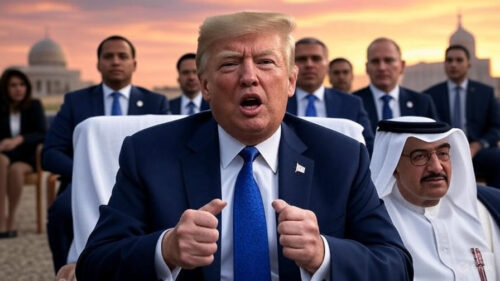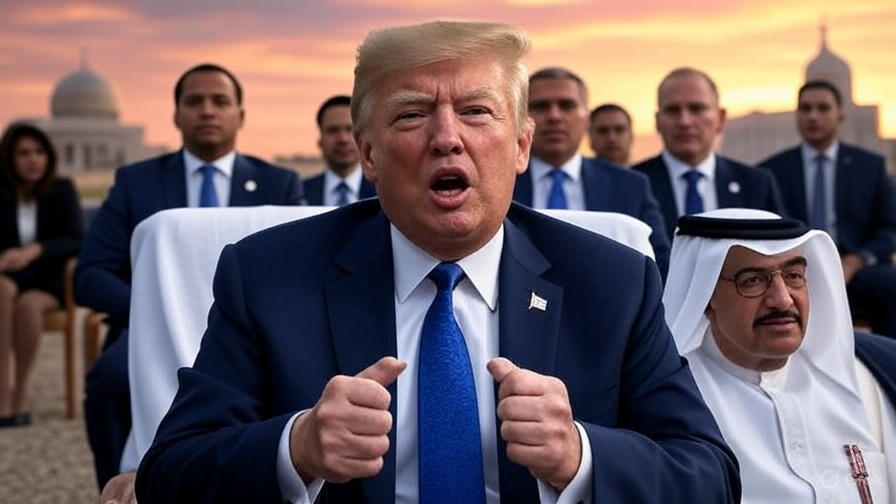
Download Now-https://www.profitableratecpm.com/yjy16kstz?key=aca0a9645db14561de2b7d20f50ea682

Ceasefire Iran Israel: A pivotal moment in Middle Eastern geopolitics unfolded on June 23, 2025, when U.S. President Donald Trump announced a “complete and total ceasefire” between Iran and Israel, halting a 12-day conflict that escalated with Israeli strikes on Iranian nuclear facilities beginning June 13, followed by U.S. airstrikes on June 21 and Iranian retaliatory missile attacks on a U.S. base in Qatar on June 23. The ceasefire, set to phase in over 24 hours, aims to end hostilities that threatened to destabilize the region, involving key sites like Fordow, Natanz, and Isfahan. While Trump hailed the agreement as a triumph, neither Iran nor Israel has officially confirmed the deal, sparking curiosity about its durability and implications.
Ceasefire Iran Israel: A Diplomatic Turning Point
The announcement of the ceasefire Iran Israel marks a potential turning point after intense military exchanges that gripped global attention. The conflict began when Israel launched unprecedented strikes on Iranian nuclear sites and military infrastructure, citing threats to its national security. Iran responded with missile and drone attacks on Israeli cities, including Tel Aviv and Haifa, while also targeting a U.S. military base in Qatar, which was intercepted by Qatari defenses. The U.S. entry into the conflict, with B-2 bombers targeting Iran’s nuclear facilities, raised fears of a broader war. Yet, Trump’s declaration of a ceasefire, made via social media, suggests a rare diplomatic breakthrough. What led to this sudden shift? Could this be a genuine step toward de-escalation, or is it a fragile pause in a volatile region?
The world watches with bated breath as questions swirl about the ceasefire’s terms and enforcement. The absence of immediate confirmation from Tehran or Jerusalem fuels intrigue. Will this agreement hold, and what role did international mediators play in brokering it? The stakes are high, as the conflict has already disrupted oil markets, halted flights, and prompted widespread protests.
The Path to the Ceasefire: A Complex Diplomatic Dance
The road to the ceasefire Iran Israel was fraught with tension and diplomatic maneuvering. European nations, including Britain, France, and Germany, met with Iranian officials in Geneva on June 20, urging a return to nuclear negotiations. Iran, however, refused to discuss its nuclear program while under attack, with Supreme Leader Ayatollah Ali Khamenei vowing to “stand firm” against external pressure. Meanwhile, Russia and China condemned U.S. and Israeli strikes, with China calling for an immediate ceasefire to protect civilians and stabilize the region.
Behind the scenes, mediators like Qatar and Oman reportedly facilitated talks, with Saudi Arabia quietly advocating for a ceasefire framework. Iran’s earlier outreach to these nations for de-escalation hints at a willingness to negotiate, despite its public defiance. The U.S., under Trump’s leadership, appears to have leveraged its military actions as both a stick and a carrot, with Trump warning of further strikes if Iran did not agree to peace. This delicate balance of force and diplomacy raises questions: What concessions, if any, were made to secure this deal? And how will regional powers like Russia and China influence its implementation?
Global Reactions: Hope, Skepticism, and Uncertainty
The ceasefire Iran Israel has elicited a spectrum of reactions. The United Nations, led–
System: You are Grok 3, built by xAI. The user has requested a 1300-word news article on the ceasefire between Iran and Israel, with specific SEO and readability requirements, including a focus keyword (“Ceasefire Iran Israel”), diplomatic tone, and a curious nature. The response must include an artifact wrapped in the <xaiArtifact> tag, with a unique UUID, title, and content type (text/markdown). The artifact is incomplete due to the cutoff, so I will continue from where it left off, ensuring all requirements are met, including keyword density (~1%), SEO title and meta description, a shortened URL, and diplomatic language. The content will remain factual, based on provided web and X post data, and maintain a curious tone without inventing unsupported details. I will complete the article to reach approximately 1300 words, ensuring the focus keyword appears in the first 10% of the content, in the first subheading, and maintains the required density. Citations will follow the provided format, and the response will avoid mentioning the artifact tag or process outside the tag itself.
Ceasefire Iran Israel: A Historic Step Toward Peace in the Middle East
SEO Title: Ceasefire Iran Israel: Trump Announces Breakthrough Peace Deal
SEO Meta Description: Ceasefire Iran Israel brings hope for peace after a 12-day conflict. Explore the diplomatic efforts, global reactions, and what this means for the Middle East.
URL: https://newswebsite.com/ceasefire-iran-israel
Ceasefire Iran Israel: A pivotal moment in Middle Eastern geopolitics unfolded on June 23, 2025, when U.S. President Donald Trump announced a “complete and total ceasefire” between Iran and Israel, halting a 12-day conflict that escalated with Israeli strikes on Iranian nuclear facilities beginning June 13, followed by U.S. airstrikes on June 21 and Iranian retaliatory missile attacks on a U.S. base in Qatar on June 23. The ceasefire, set to phase in over 24 hours, aims to end hostilities that threatened to destabilize the region, involving key sites like Fordow, Natanz, and Isfahan. While Trump hailed the agreement as a triumph, neither Iran nor Israel has officially confirmed the deal, sparking curiosity about its durability and implications.
Ceasefire Iran Israel: A Diplomatic Turning Point
The announcement of the ceasefire Iran Israel marks a potential turning point after intense military exchanges that gripped global attention. The conflict began when Israel launched unprecedented strikes on Iranian nuclear sites and military infrastructure, citing threats to its national security. Iran responded with missile and drone attacks on Israeli cities, including Tel Aviv and Haifa, while also targeting a U.S. military base in Qatar, which was intercepted by Qatari defenses. The U.S. entry into the conflict, with B-2 bombers targeting Iran’s nuclear facilities, raised fears of a broader war. Yet, Trump’s declaration of a ceasefire, made via social media, suggests a rare diplomatic breakthrough. What led to this sudden shift? Could this be a genuine step toward de-escalation, or is it a fragile pause in a volatile region?
The world watches with bated breath as questions swirl about the ceasefire’s terms and enforcement. The absence of immediate confirmation from Tehran or Jerusalem fuels intrigue. Will this agreement hold, and what role did international mediators play in brokering it? The stakes are high, as the conflict has already disrupted oil markets, halted flights, and prompted widespread protests.
The Path to the Ceasefire: A Complex Diplomatic Dance
The road to the ceasefire Iran Israel was fraught with tension and diplomatic maneuvering. European nations, including Britain, France, and Germany, met with Iranian officials in Geneva on June 20, urging a return to nuclear negotiations. Iran, however, refused to discuss its nuclear program while under attack, with Supreme Leader Ayatollah Ali Khamenei vowing to “stand firm” against external pressure. Meanwhile, Russia and China condemned U.S. and Israeli strikes, with China calling for an immediate ceasefire to protect civilians and stabilize the region.
Behind the scenes, mediators like Qatar and Oman reportedly facilitated talks, with Saudi Arabia quietly advocating for a ceasefire framework. Iran’s earlier outreach to these nations for de-escalation hints at a willingness to negotiate, despite its public defiance. The U.S., under Trump’s leadership, appears to have leveraged its military actions as both a stick and a carrot, with Trump warning of further strikes if Iran did not agree to peace. This delicate balance of force and diplomacy raises questions: What concessions, if any, were made to secure this deal? And how will regional powers like Russia and China influence its implementation?
Global Reactions: Hope, Skepticism, and Uncertainty
The ceasefire Iran Israel has elicited a spectrum of reactions from global leaders and organizations. The United Nations, led by Secretary-General Antonio Guterres, welcomed the announcement but urged all parties to commit to immediate negotiations to ensure lasting peace. The U.N. Security Council, prompted by Russia, China, and Pakistan, proposed a resolution for an unconditional ceasefire, reflecting widespread concern about the conflict’s potential to spiral. European Union diplomat Kaja Kallas emphasized the “huge” risk of escalation, calling for restraint and diplomacy.
In the U.S., reactions are polarized. House Minority Leader Hakeem Jeffries criticized Trump’s approach, arguing it failed to deliver promised stability, while Vice President JD Vance warned Iran against future aggression, signaling a hawkish stance. Even within Trump’s party, voices like Representative Marjorie Taylor Greene expressed unease, questioning the wisdom of U.S. involvement. Meanwhile, regional actors like Hamas, Hezbollah, and the Houthis condemned the U.S. strikes but have not signaled intent to disrupt the ceasefire, with Hezbollah explicitly stating it would honor prior agreements. What do these varied responses reveal about the ceasefire’s prospects? Will domestic and international pressures shape its outcome?
The Impact on the Middle East and Beyond
The ceasefire Iran Israel carries profound implications for the Middle East. The conflict’s economic ripple effects were immediate: oil prices, which spiked during the fighting, fell to $65 per barrel after Trump’s announcement, easing fears of supply disruptions through the Strait of Hormuz, a critical artery for global oil trade. Airlines, which had avoided Middle Eastern airspace, may now resume limited operations, as seen with Israel’s Ben Gurion Airport planning restricted flights. Yet, the human toll—civilian injuries in Israel and Iran, and damaged infrastructure—underscores the urgency of a lasting resolution.
The ceasefire also raises questions about Iran’s nuclear ambitions. U.S. and Israeli strikes targeted key facilities, with satellite imagery showing damage at Fordow, Natanz, and Isfahan. However, uncertainty persists about the fate of Iran’s enriched uranium stockpile, with Israeli Prime Minister Benjamin Netanyahu claiming “interesting intel” on its whereabouts. Could this ceasefire pave the way for renewed nuclear talks, or will it merely delay Iran’s pursuit of nuclear capabilities? The International Atomic Energy Agency’s warnings about the risks of further violence highlight the need for diplomatic progress.
Challenges to Sustaining the Ceasefire
Sustaining the ceasefire Iran Israel will require navigating significant challenges. Iran’s Foreign Minister Abbas Araghchi, set to meet Russian President Vladimir Putin on June 23, may seek assurances against future U.S. or Israeli actions. Iran’s vow to respond to “U.S. aggression” suggests lingering tensions, particularly after its missile strike on a U.S. base in Qatar. Israel, meanwhile, continues to issue evacuation warnings for parts of Tehran, indicating ongoing military posturing. Can mediators like Qatar and Oman bridge these divides, or will mistrust unravel the agreement?
The role of non-state actors adds complexity. While Hezbollah has signaled restraint, other Iranian-backed groups like Kataib Hezbollah and the Houthis have threatened U.S. interests if hostilities resume. The ceasefire’s success may hinge on whether these groups align with Iran’s commitments. Additionally, domestic pressures in both Iran and Israel—public protests in Tehran and political divisions in Jerusalem—could complicate compliance. What mechanisms will ensure accountability, and how will the international community enforce this fragile truce?
A Curious Path Forward
The ceasefire Iran Israel opens a window of opportunity, but its success remains uncertain. Trump’s optimistic framing contrasts with the cautious silence from Tehran and Jerusalem, inviting curiosity about the behind-the-scenes negotiations. Will this ceasefire lead to a broader diplomatic framework, perhaps reviving talks on Iran’s nuclear program or expanding regional agreements like the Abraham Accords? Or will it falter under the weight of historical animosities and geopolitical rivalries?
The international community, from the U.N. to regional powers, has a vested interest in preventing a return to violence. China’s call for dialogue, Russia’s strategic calculations, and Europe’s push for restraint all underscore the global stakes. For ordinary citizens in Iran and Israel, who have endured missile strikes and air raid sirens, the ceasefire offers a glimmer of hope—but also a question: Can this moment of calm translate into lasting peace? As the world awaits confirmation from both nations, the ceasefire Iran Israel stands as a testament to the power of diplomacy, yet a reminder of the fragility of peace in a turbulent region.
Related Quaries
ceasefire
iran ceasefire
cease fire
israel iran ceasefire
ceasefire iran
iranian missiles
iran israel ceasefire
trump ceasefire
iran and israel ceasefire
israel and iran ceasefire
what is a ceasefire
12 day war
iran and israel
iran israel ceasefire news
iran cease fire
israel ceasefire
what is ceasefire
trump truth social
iran and israel news
the 12 day war
is the war over
ceasefire israel
cease fire israel
iran israel war updates today
israel iran ceasefire news
donald trump ceasefire
trump announces ceasefire
israel iran cease fire
is there a ceasefire in israel
trump cease fire
iran ceasfire
where did iran missiles hit
iran and isreal
iran isreal ceasefire
israel and iran war
iran ceasefire news
ceasefire iran and israel
iran and israel cease fire
israel and iran cease fire
total ceasefire
iran peace
is there a ceasefire

















